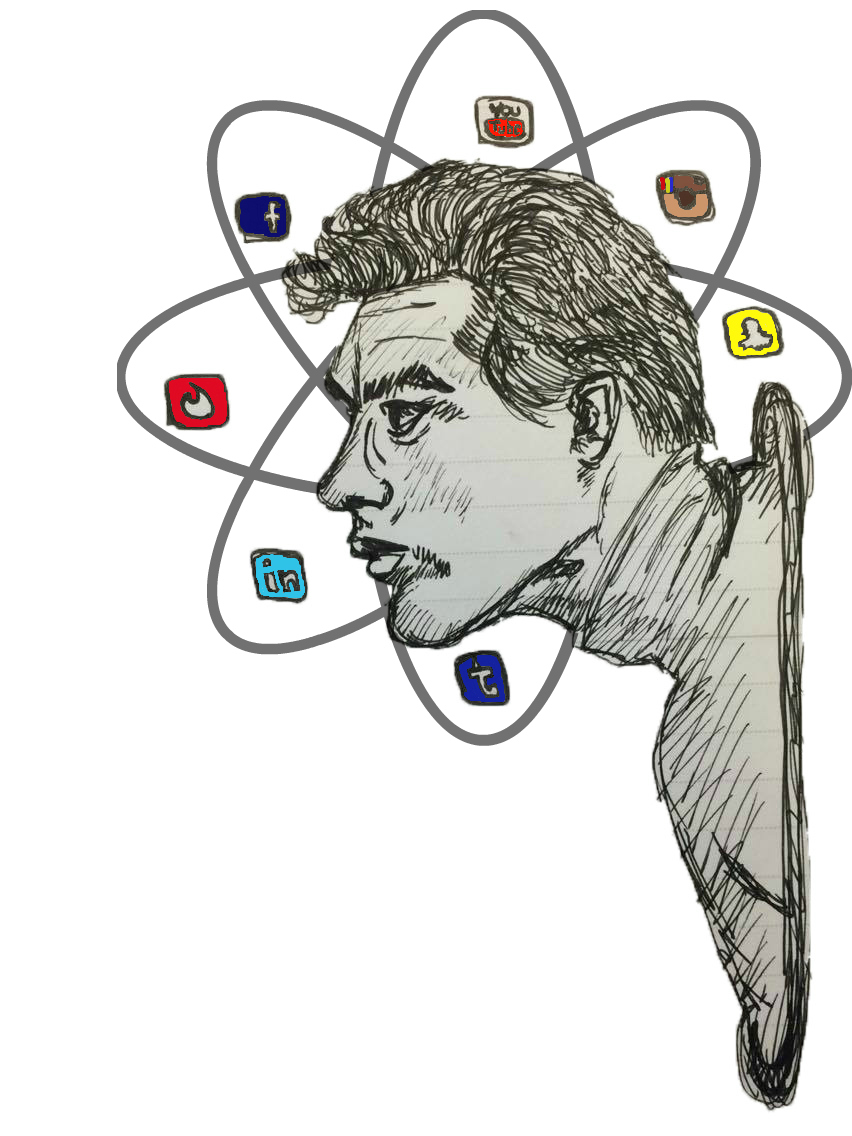The internet has a dark side. A recent McMaster University study is the latest to confirm the adverse effects of too much screen time: The connection between internet use and mental illness is even stronger than previously thought. The survey of 254 McMaster University students, using the Young Internet Addiction Test as well as a new survey of the researcher’s own design, revealed that 42 per cent of subjects faced mental health issues as a result of excessive internet use, and 48 per cent of the total sample couldn't control their use of social media. If communities such as McGill—where students make up a majority of the population—are committed to combatting mental illness among young people, this connection demands further attention.
The internet, and more specifically social media, is a pervasive aspect of student life. Students must take it upon themselves to be more conscientious of how their social media use is a mental health indicator. Additionally, mental health care providers on campus should adjust their resources to address this new connection.
According to the McMaster study, internet addiction is correlated with higher levels of depression, anxiety, and ADHD symptoms, as well as issues with planning, time management, and impulsiveness. Yet these results do not describe the full story. The Internet Addiction Test that the researchers used, comprised of 20 ‘how often’ questions, was developed in 1998; young people’s relationship with the internet has changed since then. Some of the questions based on external measures—for example, "How often do others complain about your internet use?"—don't account for how normal excessive internet use has become. Moreover, the questions don’t differentiate kinds of internet usage. This eclipses the diversity of the modern internet landscape and, importantly, the distinct and profound impact of social media on one’s mental state.
If methods of mental health diagnosis are to be accurate and clinically useful, they must account for the environment of their subjects. As such, more effort needs to be devoted to understanding the relationship between social media, the web, and their effects upon mental health—both at the broader clinical level and here at McGill. Internet addiction is not included in the latest American Psychological Association Diagnostic and Statistical Manual of Mental Disorders, never mind the more specific correlation between mental illness and social media. Mental health initiatives on campus, such as Healthy McGill and the McGill Mental Health Hub, should implement measures of social media use into their self-diagnosis surveys.
A 2014 study conducted by Facebook further demonstrates the need to account for social media use in the diagnosis and treatment of mental health. In the study, Facebook manipulated the content of its users' news feeds to evaluate the effect of social media on mood. Unsurprisingly, people were likely to mirror the emotional state of the posts they saw. A more targeted research report released in the same year found that using Facebook specifically—not just general Internet use—decreased users’ moods. Of even more concern, a study conducted earlier this year revealed a connection between social media use and depression. Participants that used social media frequently were 2.7 times more likely to be depressed. More than a quarter of all participants who reported using social media an average of 61 minutes a day showed high indicators of depression.
These results become more worrying when one considers the susceptibility to mental illness that young people already face. As of 2015, the 20-30 age demographic has the highest levels of depression, anxiety, and stress, and the lowest levels of happiness, satisfaction, and well-being compared to other age groups. Millennials have been coined "the anxious generation."
Without reducing this downturn in youth mental health to the internet alone, it is a factor that should be taken into account, especially given the high rates of internet usage among young people today. Steps should be taken to raise awareness of social media use as a mental health indicator and to encourage students to be conscientious of their scrolling time. As recent studies indicate, the unique effects of social media on mental health cannot be ignored. Mental health initiatives at McGill must acknowledge the reality of today’s youth—a reality that features 20 new Snapchat filters and endlessly scrolling newsfeeds.







